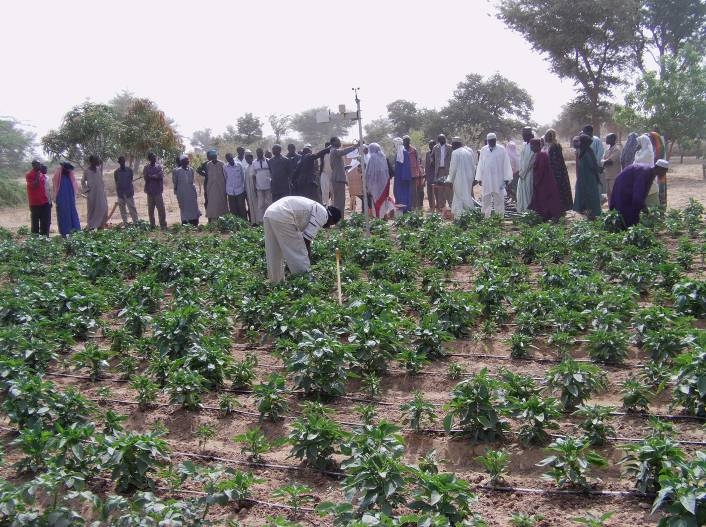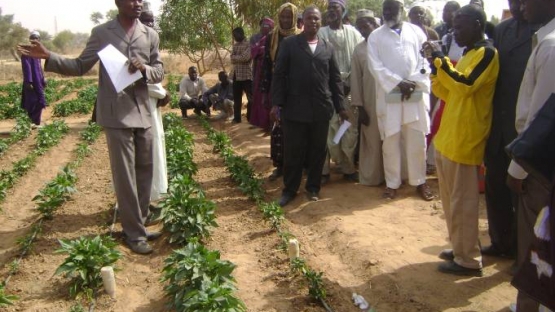In Niger, as in most of Sub-Saharan Africa, the frequency of drought has increased over the past century, causing famine in the Sahel nation, and massive population displacement. The use of traditional farming and livestock rearing practices in these harsh climatic conditions of water scarcity has led to reduced harvests. Livestock kills and losses in agricultural productivity have damaged the national economy. But there is hope on the horizon.
Nuclear techniques can determine the most efficient ways to use water and fertilizer in agriculture. They are used to help to establish drip irrigation and fertigation systems to enable smallholder farmers with scarce resources to continue farming and achieve profits from high and sustained crop production, while also conserving resources and protecting the environment.
In drip irrigation - the most efficient and cost-effective method of irrigation - water is applied directly to the root of the plant, avoiding evaporation and leakage. Fertigation refers to the application of fertilizer through drip irrigation, and controls the amount of water and nutrients in a plant's root zone. Nuclear techniques can also identify how efficient a plant's water use is, and are used to determine appropriate irrigation schedules and the optimal dosages of water or fertilizer needed for different kinds of plants.
Drip irrigation, coupled with fertigation, could reduce harvest losses and ensure optimal crop yields in the climatic conditions of Niger. The IAEA, through a regional technical cooperation (TC) project, is helping Niger and other Sahel countries to use nuclear technology to best apply these techniques to save water, improve agriculture practices, and better manage soil and water. This means that small scale farmers in Sahel Africa can keep their traditional lifestyle and at the same time be self-sufficient in food and income.
The project is concentrating on enhancing the productivity of high value crops and supporting income generation through the use of small-scale irrigation technologies. Together with Niger, 18 African countries are taking part in the project to develop and pilot test appropriate irrigation systems. An important part of the project is making sure that farmers can learn about and understand the benefits of drip irrigation and adapt the system for their own farmlands. A test site in Kollo, Niger, has been built to carry out comparative trials of both irrigation systems and traditional farming practices. This gives farmers the opportunity to see the tangible benefits of drip irrigation compared to traditional farming methods. At the site, farmers can observe trials of irrigated crops such as sweet pepper, potatoes, onion and corn. The demonstration site is run under the auspices of the Kenyan Agricultural Institute (KARI) and a number of IAEA fellows are being trained there, gaining hands-on experience with efficient agriculture management practices.
Having seen for themselves the difference between crop yields using common agriculture practices and harvests resulting from the use of drip irrigation and fertigation systems at the demonstration farm in Kollo, Niger, many local farmers are now showing their interest and willingness to collaborate with researchers in order to adapt the system to local small-scale farming practices.
Nuclear Techniques Help Farmers Survive Drought in Niger
25 May 2012

Related resources
More
Last update: 11 Oct 2018


